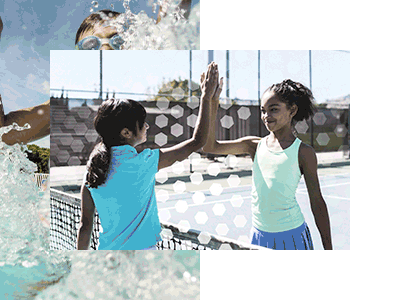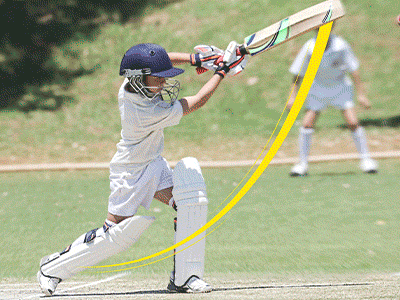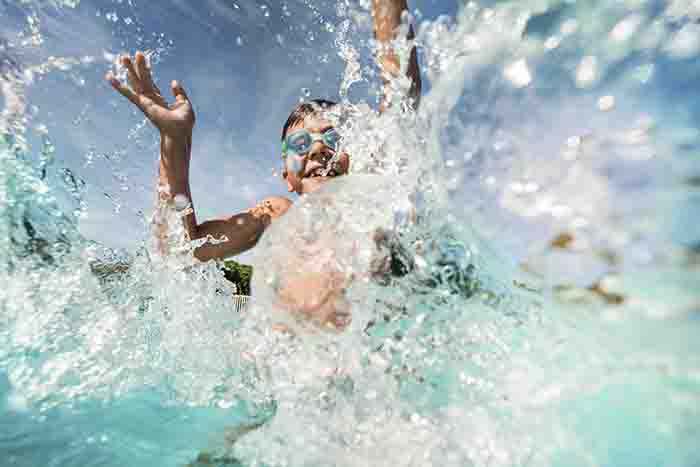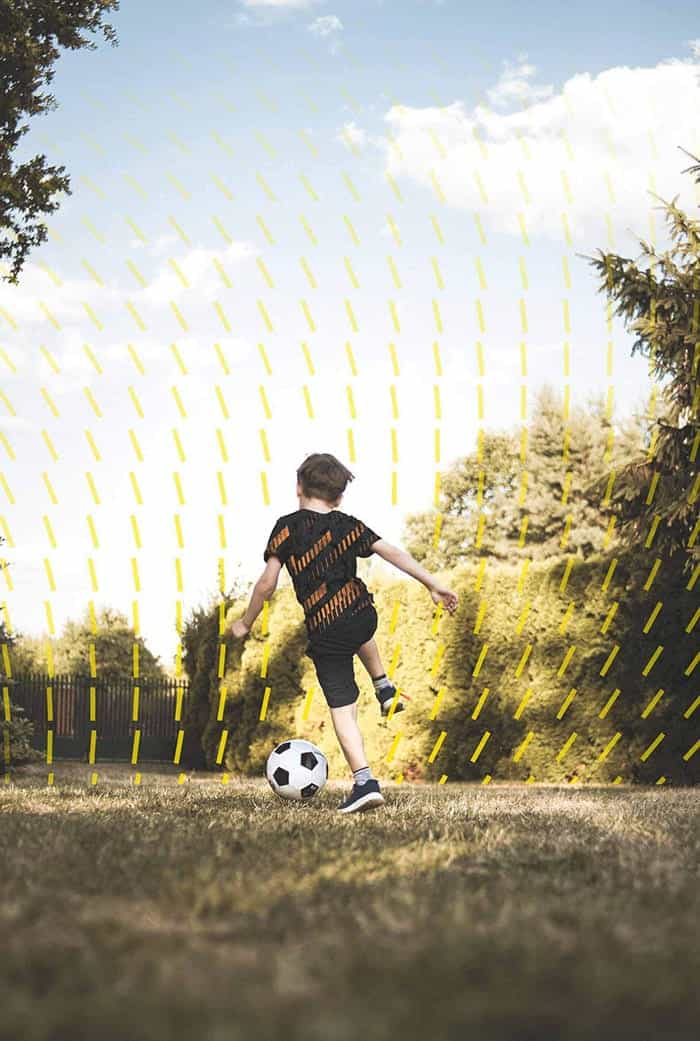Not too long ago, if someone said they needed to work on their mental health, they might receive a roll of the eyes or a dismissive ‘you’ll be right.’ But these days, interest in areas such as yoga and mindfulness is booming as people become more aware about their mental wellbeing.
Whether it’s a few deep breaths before your next meeting, a run on your lunch break or a quick 5-minute meditation before picking up the kids, we’re beginning to manage our stress and anxiety in new ways.

But do you look out for signs of stress and anxiety in your kids too? Statistics show that 6.9% of Australian kids (aged 4–17) have suffered from an anxiety disorder in the past 12 months, and it’s on the rise.*
We speak with clinical psychologist Claire Hurwitz to uncover just how important sport is for the mental development of your kids.
“The first 7 years of your life are the most fundamental in forming who you are,” Claire Hurwitz says. “By age 7 you have developed most of your beliefs.”
Claire works with adolescents, young adults and adults that struggle with anxiety, mood disorders, relationship difficulties and low self-esteem. Since half of all mental conditions start by the age of 14, Claire believes that parents should take action to improve their kid’s mental wellbeing from a young age.
This is where the transformative power of sport can help give your kids a mental breath of fresh air and dramatically improve their mental wellbeing.
Claire reveals what it is about sport that is so invaluable for your little ones.

There is no one cause
A big concern these days is the effect of social media on your mental health.
“Social media comes with a lot of comparison with other peers, which inevitably and really significantly can increase stress and anxiety, and all other emotional difficulties,“ Claire explains. “Kids can also develop an avoidance coping mechanism, or unhealthy distraction with technology and a sedentary lifestyle that can stop them from engaging in the world.”
Before you lock away your kid’s mobile phone, it’s important to know that there are biological and environmental factors at play here too.
Your brain produces chemicals called serotonin and dopamine, which influence how you feel and behave. “Generally, anxiety tends to run in families so if a child’s parents have anxiety, that child might be predisposed to some anxious tendencies. Their serotonin and dopamine levels might be lower than the average child,” Claire explains.
Additionally, stressful life events can also affect your kid’s mental health, such as the loss of a family member or moving schools. “12 to 13 is a significant age where you’re forming real connections with your peer groups,” Claire says. This means that a life change such as moving schools at this time can really affect your kid’s psychological development.
If your kid is spending a lot of time on screens, rather than banning all devices, try limiting screen time to certain hours of the day and encouraging them to get outdoors in between.

From fight or flight to rest and digest
When you’re anxious, your body thinks that you’re in danger and activates your fight or flight system (known as the sympathetic nervous system). This releases adrenaline that causes the typical symptoms of anxiety, such as a pounding heart, rapid breathing and tingling hands.
If your kid is feeling anxious, you can help them to relax by activating their rest and digest system (known as the parasympathetic nervous system).
“The most basic and effective way to activate the parasympathetic [nervous pathway], which is essential for anxiety and stress, is through the breath,” Claire says. So consider grabbing your yoga mat and practicing some deep breathing with your kid.
Getting back to nature is a huge help, too. Claire suggests getting outside and adding in some movement by walking barefoot through grass or taking a stroll along the beach for an extra calming approach.

The power of sport
“When it comes to sport, a really individualised approach is necessary,” Claire says.
Team sports will help your kids learn how to build friendships, thrive as part of a community and share a sense of responsibility. Win or lose, they will learn how to be resilient and bounce back from challenges.
“Resilience is huge in one’s lifetime. The ability to learn that when things don’t go our way, when the outcome isn’t as planned, or when it feels like a loss or failure, things will still be okay,” Claire says. Team sports can also create a safe environment for your kid to learn important social skills if they’re struggling with social anxiety.
On the other hand, your kids can also benefit from kicking the footy around alone or competing against themselves on a run or swim. This kind of sport is great for teaching them to motivate themselves without the influence of other people.
“That individual sense of accomplishment does wonders for your relationship with yourself,” Claire says. “I think for some children, individual [sport] might be more impactful in terms of when you accomplish something – it more significantly builds your confidence.”
Claire recommends getting your kids interested in a sport around the ages of 2–3 years. Whether it’s joining a soccer team , swimming lessons or baby yoga, any kind of sport can help kick-start your kid’s mental wellbeing in the right direction.
Explore rebel’s range of kids sportswear and equipment to find everything you’ll need to get started. From Nike kids jumpers , football boots and netball shoes to footies , tennis racquets and the latest runners, your kids will simply love trying on their stylish sports clothing.

Tips for getting your tykes more active
Sometimes getting our little ones interested in exercise or sport is easier said than done, right? Here are some of our top tips to help parents encourage healthy habits with their kids:
1. Gamify it: We all know kids love games, so find a way to gamify exercise. This could mean running an obstacle course in the backyard, seeing who can spell H.O.R.S.E first on the b-ball courts, or having scooter races .
2. Get involved: There’s no better way to inspire than leading by example. If your kids see you getting active and having fun, they’ll be much more likely to get involved themselves.
3. Celebrate the wins: Cheer on every participation, kick, handball, jump, whack or sprint. It doesn’t matter if they win, it matters that they love giving it a go.
4. Make it social: Kids are much more likely to get sporty if they know their friends are playing too. Nothing motivates more than FOMO!
5. It all starts at home: Rather than choosing a sport for them, try a bit of everything at home to find an activity your kids genuinely loves.
*The information on this site is not medical advice. It is generic and does not take into account your personal circumstances, physical wellbeing, mental status or mental requirements. Any medical questions should be referred to a qualified healthcare professional.